nerd teacher [books] rated Spy x Family, Mission 1: 4 stars
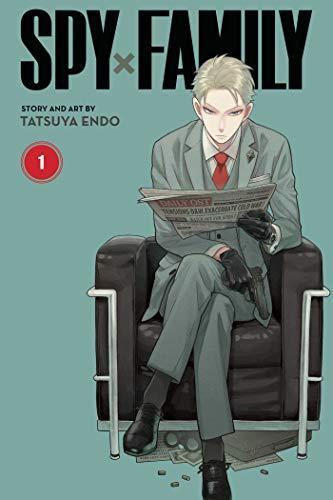
Exhausted anarchist and school abolitionist who can be found at nerdteacher.com where I muse about school and education-related things, and all my links are here. My non-book posts are mostly at @whatanerd@treehouse.systems, occasionally I hide on @whatanerd@eldritch.cafe, or you can email me at n@nerdteacher.com. [they/them]
I was a secondary literature and humanities teacher who has swapped to being a tutor, so it's best to expect a ridiculously huge range of books.
And yes, I do spend a lot of time making sure book entries are as complete as I can make them. Please send help.
This link opens in a pop-up window

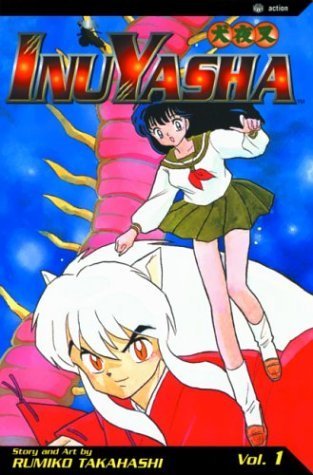
Kagome, a young school girl from modern-day Japan, gets pulled into a time portal and transported back to feudal Japan …
I can't tell if it's because of the translation or if it's just... not great. Or maybe it's both? But either way, it really is quite tedious for something that you think would be engaging and interesting. It really was a struggle for it to hold my attention, which was... weird considering expropriation is a topic that I'm rather interested in.
There's also little real commentary about expropriation and the ways of doing it. It's more like a bit of a story of individual events that all were, to some extent connected. Which is fine, but that wasn't really what I was sold. And it comes off as being a bit... obnoxious because it refuses to really acknowledge that there is a place for expropriation, though we need to have less of a masculinist tendency behind it (which would've been an interesting point to engage with, since it was also …
I can't tell if it's because of the translation or if it's just... not great. Or maybe it's both? But either way, it really is quite tedious for something that you think would be engaging and interesting. It really was a struggle for it to hold my attention, which was... weird considering expropriation is a topic that I'm rather interested in.
There's also little real commentary about expropriation and the ways of doing it. It's more like a bit of a story of individual events that all were, to some extent connected. Which is fine, but that wasn't really what I was sold. And it comes off as being a bit... obnoxious because it refuses to really acknowledge that there is a place for expropriation, though we need to have less of a masculinist tendency behind it (which would've been an interesting point to engage with, since it was also hyper-focused on such tendencies).
Just... felt lacking. Not horrible, not great.... Disappointing? To an extent.
The book details a lot of the author's growing discomfort working in the UN and with international diplomacy through formal organisations. Each essay focuses on slightly different topics, though most of them are interconnected and refer back to each other.
A lot of it is pretty interesting from an 'insider' perspective, but it also doesn't really go far enough. Perhaps it was because I was introduced to Carne Ross through It's Going Down, but I was expecting something... more.
It completes with an essay about their Independent Diplomat organisation, which is... I guess useful. But I don't think it does what the author's pointing out is the problem. Just because Ross helps the government of Kosovo in the UN, it doesn't mean that they're helping Kosovars in the world. Perhaps it's making it slightly easier, but it's also still maintaining the hierarchies that people still suffer under. Maybe the context …
The book details a lot of the author's growing discomfort working in the UN and with international diplomacy through formal organisations. Each essay focuses on slightly different topics, though most of them are interconnected and refer back to each other.
A lot of it is pretty interesting from an 'insider' perspective, but it also doesn't really go far enough. Perhaps it was because I was introduced to Carne Ross through It's Going Down, but I was expecting something... more.
It completes with an essay about their Independent Diplomat organisation, which is... I guess useful. But I don't think it does what the author's pointing out is the problem. Just because Ross helps the government of Kosovo in the UN, it doesn't mean that they're helping Kosovars in the world. Perhaps it's making it slightly easier, but it's also still maintaining the hierarchies that people still suffer under. Maybe the context is slightly different, maybe sometimes there are 'good' people in power, but... It doesn't stop to deal with the consideration of what happens when someone manipulates the goodwill they've built through seemingly generous acts? What happens when, if that person was 'good', the next person takes over and their work is for naught because it's so easy to destroy things under hierarchical power structures?
Certainly those were considerations?
Content warning Discusses apologia of rape, abuse, and CSA; includes conversations of various bigotries (spin a wheel, and I promise it's there).
I hate this book, and it's a prime example of why the New Atheists harmed any movement of any sort by atheists. It just provides so many examples of the many of the reasons why people get so upset about anti-theism (which, for the record, I have a complicated relationship with because of New Atheists), particularly as their anti-theism is based entirely in forms of bigotry and a failure to understand the world around them. The anti-theism of people like Dawkins and his ilk does not, in any capacity, explore the connections between (primarily organised) religion and their societies.
Starting with the more minor problems: I don't know what editor allowed a book, even in 2006, to include URLs in the text. Even on the ebook version, the links were there without the ability to click them. I also don't know why the editor even encouraged Dawkins to keep many of his notes, which were incredibly disparaging to many people. They were so elitist and pompous; they were almost all entirely irrelevant.
Oh, and the fourth chapter does exactly nothing of what he claims it does. It's just a continuation of the third chapter and doesn't even contribute to a conversation of why there "almost certainly is no god."
The rest of the book is pure bigotry and abuse/rape/CSA apologia, so this is probably going to be a messy range of thoughts:
I can't even begin to describe the amounts of rage I felt reading him try to say that "mild paedophilia" is a thing in order for him to be able to focus on "religious" abuse while trying to make it out to be "worse" (as if there are hierarchies of abuse -- how despicable) or him trying to separate physical, mental, and emotional abuse (and into "religious abuse") when they're all inherently connected in some form.
He routinely uses the "protect the children" trope that the right uses except for atheism, including saying that we should take children away from their parents for "indoctrinating" them. He has zero concept of the abuse that took place in residential schools, and he acts like we've since stopped doing any of the most harmful things that we've ever done to people (e.g., slavery).
And all of his supposed "support" of gay people (because he never considers the existence of anyone outside of binary lesbian and gay people) is entirely hollow once you know what his stance has been on trans people in the years that followed publication. How can any of his "support" really be genuine? How can any of his belief to "let people be as they are and want to be" even be real when he simply won't? I wouldn't have believed him in 2006, and I certainly don't today.
I'm baffled by this text and how often it floats around spaces filled with "radical pedagogues," how often it's cited as something that has shown people what they didn't know. That's fine. I'm not against texts that make people aware of something, nor am I against people finding something in places where I do not.
But this book is baffling. Its construction is confusing, and much of it feels apocryphal while told as fact. It swims between multiple perspectives without really claiming any beyond seeking to reform the school system, and that's the part I take most issue with. It is a reformist text, seeking to make it clear that what we're doing is wrong but not so completely wrong that we can't salvage it. At best, I think it was misguided when it was published, and its philosophical discussions have been outdated since before then.
I also cannot figure …
I'm baffled by this text and how often it floats around spaces filled with "radical pedagogues," how often it's cited as something that has shown people what they didn't know. That's fine. I'm not against texts that make people aware of something, nor am I against people finding something in places where I do not.
But this book is baffling. Its construction is confusing, and much of it feels apocryphal while told as fact. It swims between multiple perspectives without really claiming any beyond seeking to reform the school system, and that's the part I take most issue with. It is a reformist text, seeking to make it clear that what we're doing is wrong but not so completely wrong that we can't salvage it. At best, I think it was misguided when it was published, and its philosophical discussions have been outdated since before then.
I also cannot figure out for whom this book is written. Who is the audience? What is its purpose? Either I struggle to ascertain that or it has done little to be clear. Is it the fault of the translation? I'll never know, as my French is poor.
What I do know is that all of the chapters could be boiled down to a paragraph. This could have been a pamphlet rather than a book, and it probably would've made more sense than building things as they had been done. I like thinking about what I'm reading and building connections, but this was constructed to be intentionally obtuse in nature.
In short, it feels and reads like academic wankery.
Edit: Also, as someone who as routinely worked with children with whom I share no common verbal language, the fact that I've seen so many people cling to this idea that Jacotot's students were able to achieve fluency "in mere months" is beyond me because that is a lot of work. Nowhere does Rancière even engage with the possibility that these Flemish guys who didn't speak a word of French... could have spoken at least some French and had some basic linguistic capability or possibly had another similar language to pull from! Or an interest prior to meeting Jacotot. None of this is addressed or considered, while Rancière simply claims this as fact (which we cannot really prove or disprove).
It's this constant focus on one person to be the one hero, which Jacotot is not. Learning is a community practice where people bring in ranges of knowledge, and these sorts of philosophy books perpetually hyper-individualise them even when they don't intend to.

Hogfather is the 20th Discworld novel by Terry Pratchett, and a 1997 British Fantasy Award nominee. It was first released …
First and foremost: There is not nearly enough written about anarchist movements outside of the US, Spain, and Kropotkin. That's absurd, and it's also tiresome. It leaves out a lot of characters and a lot of movements, and it enables people (particularly those in Western Europe and the Anglophone world) to pretend that some things haven't been said or done. There's a lot of history missing, and it's ridiculous.
Which is really why this book is interesting. It's history that is rarely covered, but it's written in the most boring way possible. It's like a timeline filled with names and dates; it's a narrated chronology, with minimal description of events or people (except a handful). And the analysis is sorely lacking.
There are moments where the author fails to recognise what colonialism is, how it has impacted loads of people, and that people in empires built on colonialism and imperialism …
First and foremost: There is not nearly enough written about anarchist movements outside of the US, Spain, and Kropotkin. That's absurd, and it's also tiresome. It leaves out a lot of characters and a lot of movements, and it enables people (particularly those in Western Europe and the Anglophone world) to pretend that some things haven't been said or done. There's a lot of history missing, and it's ridiculous.
Which is really why this book is interesting. It's history that is rarely covered, but it's written in the most boring way possible. It's like a timeline filled with names and dates; it's a narrated chronology, with minimal description of events or people (except a handful). And the analysis is sorely lacking.
There are moments where the author fails to recognise what colonialism is, how it has impacted loads of people, and that people in empires built on colonialism and imperialism often seek to work together. In trying to be clever (pointing out irony where none truly exists), he undermines his own understanding of the events he's writing about and makes it clear that it's barely surface level (despite his position as a professor of Latin American studies).
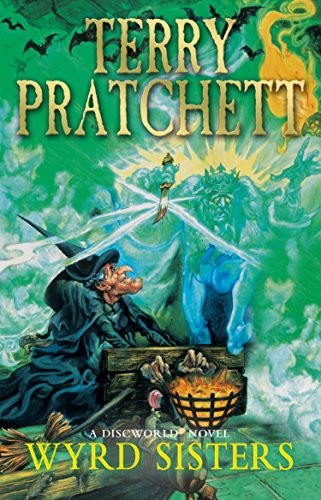
Sub-series: Witches #2
Granny Weatherwax, Nanny Ogg, and Maigrat have fairy godmother-dom thrust upon them.

Shamans possess mysterious powers that allow them to commune with gods, spirits, and even the dead…and Manta Oyamada's about to …
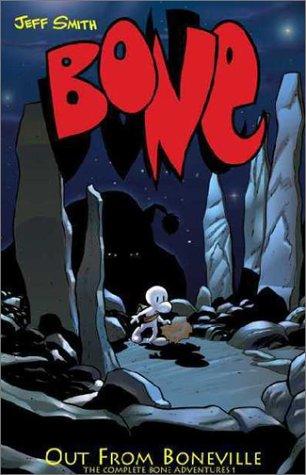
"After being run out of Boneville, the three Bone cousins - Fone Bone, Phoney Bone, and Smiley Bone - are …

This captivating story of Hiroshima was one of the original Japanese manga series. New and unabridged, this is an all-new …
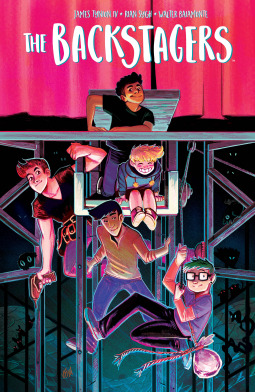
"All the world's a stage . . . but what happens behind the curtain is pure magic--literally! When Jory transfers …
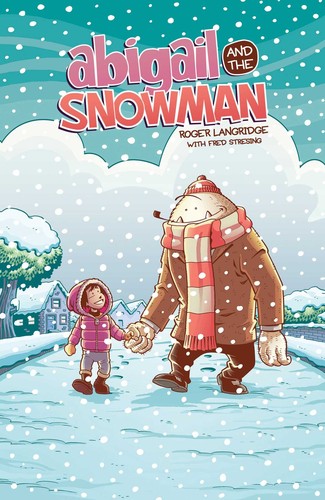
Abigail is a nine-year-old with a huge imagination but when she and her dad move to a small town, that …